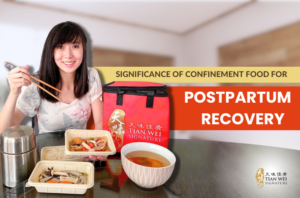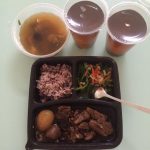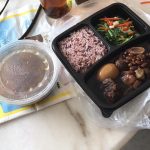81 Tagore Lane, TAG A, #01-11 Singapore 787502 ♦ Reservation : +65 6727 5599
What Happens to Your Body After An Abortion
If you were rejoicing over a positive pregnancy test just weeks or months ago, coping with a sudden and unexpected miscarriage can be difficult. Even though you never saw your baby (except, perhaps, on ultrasound), you knew that he was growing inside you and you may have formed a bond. You may have daydreamed about your baby and imagined yourself as a mother. And then, all the excitement abruptly came to a stop.
What happens physically?
Depending on which stage of miscarraige or abortion you went through, duration of recovery can vary. The initial phase of miscarriage normally involves heavy bleeding, blood clots and maybe stronger cramps compared to during your normal menstruation cramps. The heavy bleeding should not remain for more than a few days. Normally it’s only light bleeding and spotting which last about one to two weeks. Whether it’s a miscarriage, medical abortion or surgical abortion, expect the bleeding to be like during menstruation. Sometimes spotting can happen until the next menstruation cycle too. It is considered normal.
As for cramps, some people may suddenly feel a sudden pang following with a gush of blood clot several weeks post abortion. If this continues, do contact your healthcare provider.
There are other symptoms that you may experience after an abortion like nausea, vomiting and tiredness. This is normal and it will stop after a few days after the abortion or miscarriage. One other interesting thing that may happen is that you may experience tender and sore breasts which may also leak. Do not worry as these symptoms can will wear off seven to ten days after abortion.
What can I do during this time?
During this time, there are few steps that are commonly advised following an abortion to reduce risk of infection:
- Avoid placing anything vaginally ( tampon, sex objects, etc). During bleeding, use a sanitary pad instead.
- Abstain from sexual intercourse for one to two weeks.
- Avoid soaking in bath tubs or swimming pools for one to two weeks.
Other good practices you could do for a smooth recovery:
- Stay away from vigorous exercises like horse riding, heavy lifting, etc as it may cause more bleeding and cramping. Keep to only light exercises for the next two weeks.
- Avoid bathing during the first 24 hours after a surgical procedure. If you must, have someone be there to take care of you just in case you experience dizziness from general anesthesia during the shower.
What can I do in terms of diet?
Due to loss of blood and possibly fatigue, foods with complex carbohydrates, high in protein, rich in iron, folate and vitamin B12 will help your body to recover. A healthy meal delivery Singapore service suitable for confinement should have these because:
- Complex carbohydrates like brown rice, millet, rolled oats, balck barley, whole wheat bread, and whole wheat crackers are slow releasing carbohydrates. This means the body is able to regulate energy levels and provide energy to you body for longer periods of time. This would mean you will less likely experience a sugar rush or a sugar crash.
- Proteins like fish, meat and poultry are also rich in vitamin B12 which is important for red blood cell production. Proteins like red meat and offals are high in heme-iron as well. It is important to produce more red blood cells to replenish the blood loss you may be experiencing during this time.
- Foods that are rich in folate can be found in leafy green vegetables and legumes. They are also known as first trimester superfoods because despite having folic acid supplements, we need to take folate rich foods from our diet to prevent spina bifida in the fetus during the first trimester. Like vitamin B12, folate is important post abortion for the production of healthy red blood cells. Any deficiencies in either of these nutrients can put you at a higher risk of anemia and prolonged recovery.
- Besides that, fruits and vegetables are important during this time to supply antioxidants and increase fibre intake. It helps to support good gut health and the immune system. During this time, you may not move as much. So, having sufficient fibre intake and fluid intake during this time will help to support a good bowel system as well and prevent constipation
- It is essential to have Omega 3-DHA rich fishes at least twice a week. Omega 3-DHA rich fishes is also known as third trimester superfoods as it helps to reduce risk of preterm labour. Omega 3-DHA is anti-inflammatory. During post abortion, it’s anti-inflmmatory properties may reduce pain produced from cramps. Other than that, Omega3-DHA is also known as a mood lifting nutrient as it plays a part in serotonin regulation in your brain.
If you are considering a meal that covers all these principles, you can find such meals with Tian Wei Signature. We serve a balanced meal with a mixture of different red meat, legumes and poultry throughout our meals. We also serve fish dishes two to three times a week too! Our meals are also MSG-free and are dietitian-guided to include essential nutrients that help you speed up your recovery. So do check us out, here!







